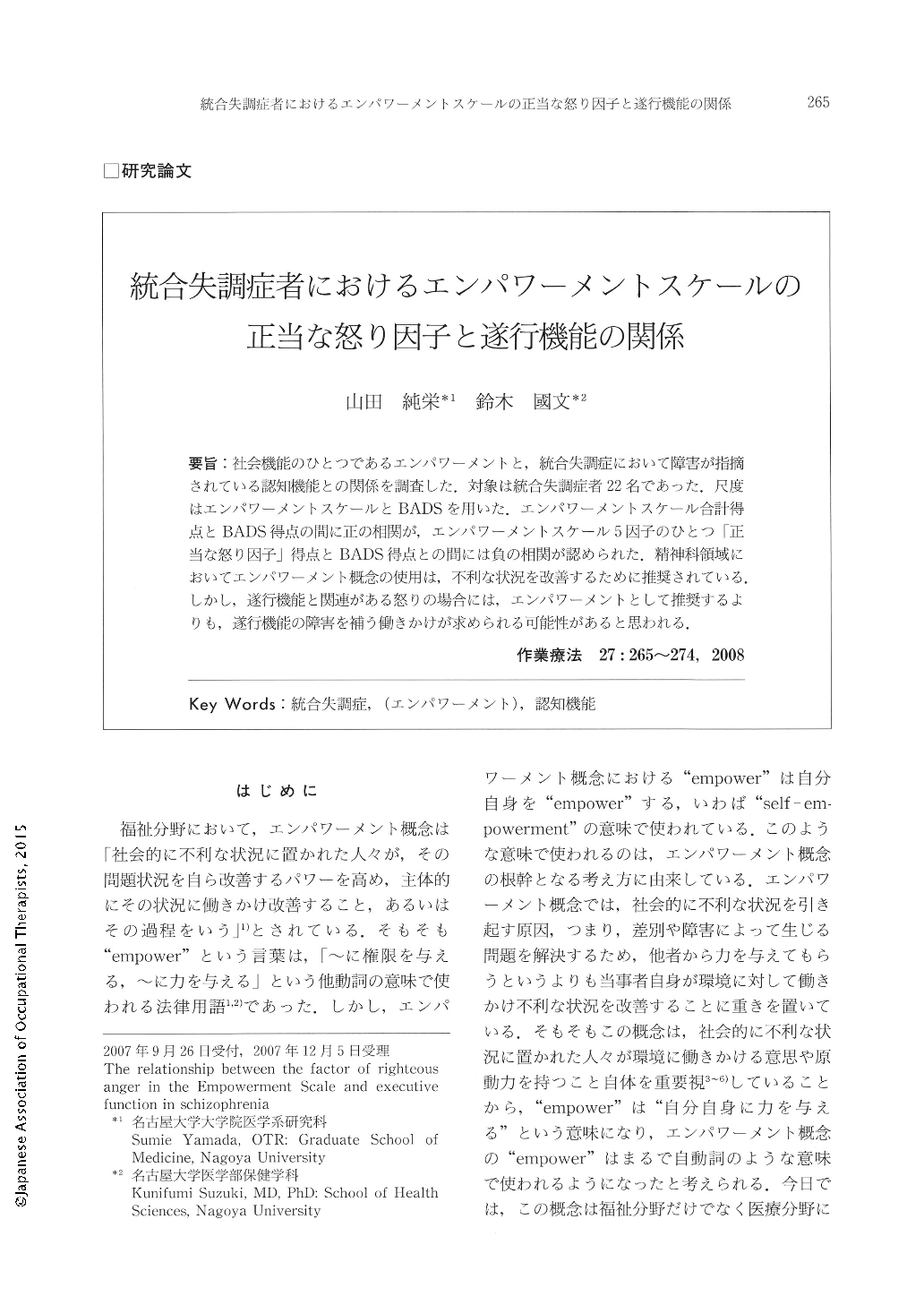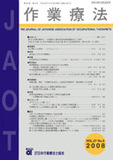Japanese
English
- 販売していません
- Abstract 文献概要
- 1ページ目 Look Inside
- 参考文献 Reference
要旨:社会機能のひとつであるエンパワーメントと,統合失調症において障害が指摘されている認知機能との関係を調査した.対象は統合失調症者22名であった.尺度はエンパワーメントスケールとBADSを用いた.エンパワーメントスケール合計得点とBADS得点の間に正の相関が,エンパワーメントスケール5因子のひとつ「正当な怒り因子」得点とBADS得点との間には負の相関が認められた.精神科領域においてエンパワーメント概念の使用は,不利な状況を改善するために推奨されている.しかし,遂行機能と関連がある怒りの場合には,エンパワーメントとして推奨するよりも,遂行機能の障害を補う働きかけが求められる可能性があると思われる.
This paper examines the correlation between the level of empowerment and the degree of executive function in schizophrenic patients. In 22 outpatients with DSM-IV schizophrenia, measures of Empowerment Scale and Behavioral Assessment of the Dysexecutive Syndrome (BADS) were carried out. A significant correlation was found between the overall score of the Empowerment Scale and the overall score of BADS. However, a significant negative correlation was found between the score of righteous anger factor in the Empowerment Scale and overall score of BADS.
Many studies have investigated the relationship between executive function and social functioning in schizophrenic patients, and almost all authors have agreed that executive function underlies social functioning. Initially, our results support this reasoning. However, as to the relationship between executive function and each of the five empowerment factors, we found that a high righteous anger score is indicative of executive dysfunction. Therefore, this factor does not reflect executive function but rather has some relation with executive dysfunction.
Many authors recommended improving the empowerment of patients with various illnesses to overcome their disadvantaged situation. However, as to the Empowerment of patients with schizophrenia, it is inevitable to take account of the relationship between their anger and executive dysfunction. In some cases, an intervention to compensate for executive dysfunction is recommended before attempting to improve empowerment.

Copyright © 2008, Japanese Association of Occupational Therapists. All rights reserved.


